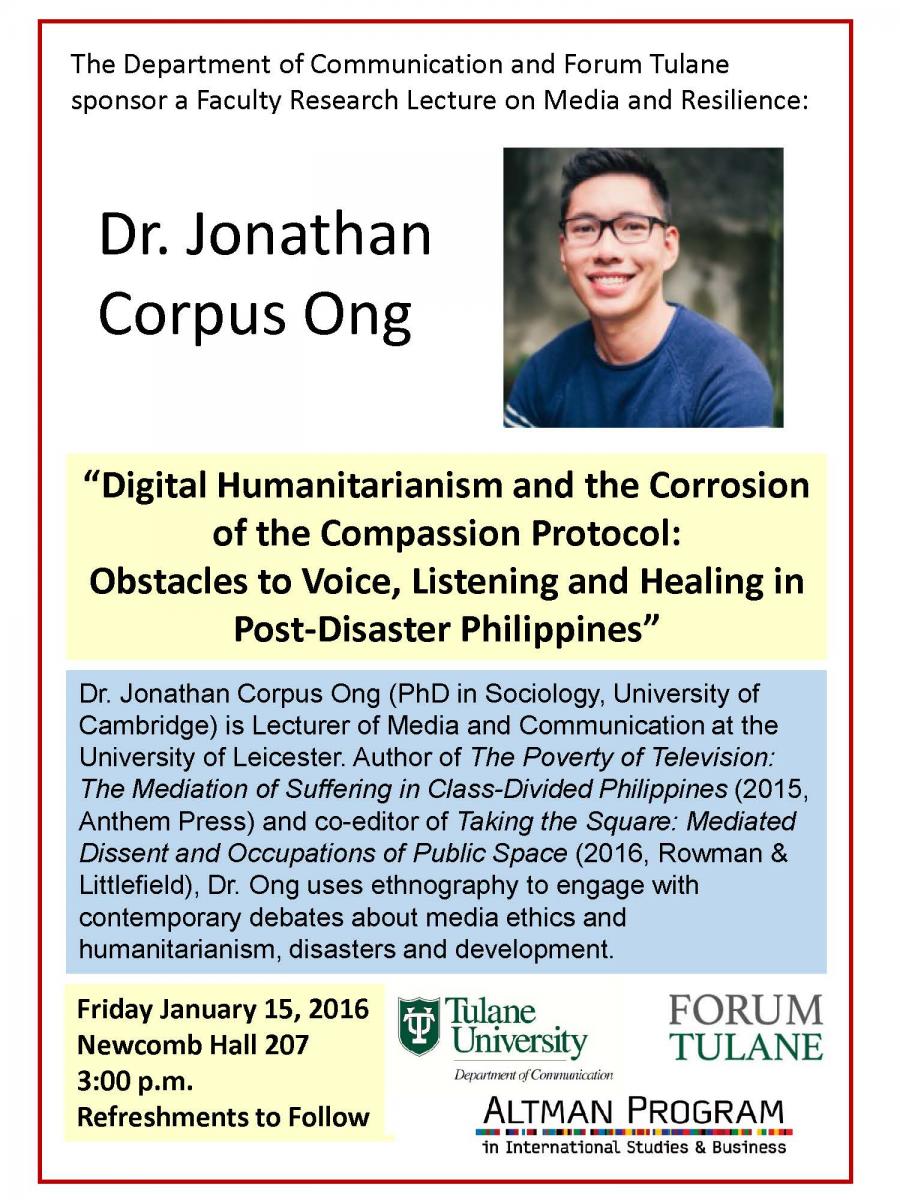Altman Co-Presents: "Digital Humanitarianism and the Corrosion of the Compassion Protocol"

On Friday, January 15, Dr. Jonathan Ong visited Tulane to give a talk entitled, "Digital Humanitarianism and the Corrosion of the Compassion Protocol: Obstacles to Voice, Listening and Healing in Post-Disaster Philippines." Dr. Ong is Lecturer of Media and Communication at the University of Leicester and author of The Poverty of Television: The Mediation of Suffering in Class-Divided Philippines, out in 2015 from Anthem Press. Dr. Ong uses ethnography to engage with contemporary debates about media ethics and humanitarianism, disasters and development. The abstract for his talk is below:
Digital technologies have been invested with great optimism for enabling "people-centered humanitarian action" and creating new ways for disaster-affected communities "to organize and respond to their own problems" (World Disasters Report 2013). This technological vision was put to the test in the Typhoon Haiyan response, where humanitarian agencies invested more into being "accountable to affected people" than in any other emergency and set up a suite of feedback mechanisms for people to communicate their appeals. Despite lofty promises of "humanitarian technologies" however, this talk suggests that actual achievements have been modest, as there was little evidence of substantive corrections to interventions and new programs strategically developed based on community feedback. Drawing from two ethnographic research projects funded by UK's DFID ("Obliged to Be Grateful") and the ESRC ("Humanitarian Technologies Project"), this paper critically reflects on how digital technologies have transformed the compassion protocol of humanitarian practice. In this context, technological feedback mechanisms elicit responses that are decontextualized and de-emotionalized, creating new "voice-denying rationalities" (Couldry 2010) that inhibit disaster-affected people's cunning, ruse, and high-emotion appeals for aid. I argue that this technologization of humanitarian intervention results in new efficiencies that often lead to individualistic and utilitarian responses to listening and healing in the disaster zone. Nevertheless, the talk recognizes the creative uses of technologies for coping and healing by disaster-affected people. Using examples of disaster memes on Facebook and disaster dating on Grindr, I demonstrate the significance of media in reaffirming relationships after rupture.
Dr. Ong's visit was co-sponsored by the Altman Program, the Department of Communication and Forum Tulane.
